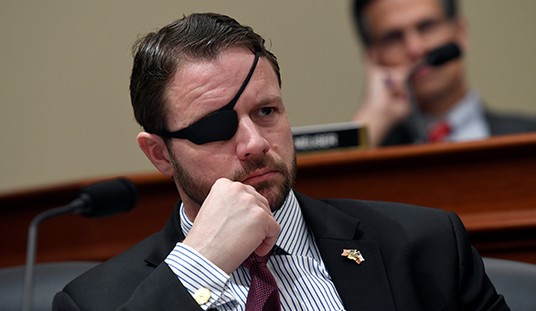Talk about coming back from the dead.
After spending nearly a decade in the wilderness, Mexico’s disgraced and near-defunct Institutional Revolutionary Party (PRI) has risen from the political ashes. With a strong showing in that country’s recent elections, the PRI captured the majority in the 500-member Chamber of Deputies and won five of six governorships by taking 36.8 percent of the vote. The National Action Party (PAN), which produced the last two presidents and controlled the legislative branch since 2000, suffered heavy losses across the board with only 27.9 percent of the vote. Political observers on both sides of the border interpret these stunning results as a rejection of President Felipe Calderon’s bloody war against the nation’s drug cartels. Calderon — who represents the PAN — is halfway through a six-year term and must now work with a hostile legislature.
Americans should pay attention to all this since, unlike Las Vegas, what happens in Mexico never stays in Mexico. It spills into the United States. It impacts the three policy areas that form the backbone of the relationship between the countries: trade, immigration, and drugs. Besides, the United States has pledged, via the Merida Initiative, $1.4 billion to help Calderon fight the drug lords. And we must protect that investment.
The presidency in Mexico is up for grabs in 2012, and commentators south of the border insist that the fact that the PRI dominated the midterm elections puts it in a good place to retake the top job. The PRI held the presidency for 71 years through a potent mixture of corruption and intimidation.
In 2000, the PAN’s Vicente Fox broke that streak. Shortly after Calderon was inaugurated in 2006, he declared war on the cartels and sent soldiers across the country in a crime-fighting campaign that has resulted in the arrests of more than 60,000 drug suspects and the deaths of more than 10,000 people.
This is a high-stakes and dangerous game for the traffickers, but also for Calderon. Aside from personal safety issues — i.e., a member of Calderon’s inner circle was arrested last year for feeding the cartels information about the president’s whereabouts — it’s also not clear that Mexico’s army is the right tool for fighting the drug war. As reported recently in the Washington Post, there are serious allegations of torture, abductions, and other forms of abuse by the Mexican military, much of it supposedly in retaliation for the torturing and killing of soldiers by drug cartels engaged in acts of terrorism.
Calderon has to get to the bottom of these allegations of abuse and punish those who are responsible. It’s critical that this happen. If it doesn’t, U.S. support for the drug war could dissipate. But what choice does Calderon have but to rely on the military? Local and state police aren’t much better since many of them subsist on bribes from the drug cartels.
Meanwhile, far from being outlanders, drug lords are fully integrated into Mexican society. They’re folk heroes in some corners of Mexico. Many are husbands and fathers, and some of them might even coach Little League on weekends.
Maybe that explains the ambivalence. According to polls by Mexican newspapers, many Mexicans are still supportive of the drug war as a just cause and a battle that Mexico cannot afford to lose lest it become a failed state. And yet, in a classic example of Mexican fatalism, most people also think the war will ultimately fail. Besides, they’re tired of the violence and many of them blame Calderon for not leaving well enough alone.
The PRI took advantage of that unease, insisting that returning it to power would return tranquility to Mexico. But it can’t afford to celebrate for long. The drug cartels might think they’re going to get an easier ride now that the PRI is in control of the legislature and able to thwart Calderon by cutting off funds for the military. But the PRI would be wise to remember that the Mexican people, while tired of the violence, still support the war. If the PRI is seen as being in the pocket of the drug lords, its resurgence could be short-lived.
Calderon should press ahead with the crackdown. And, if the PRI tries to interfere, he should paint the opposition as appeasers and obstructionists. All the while, he should make the case to the Mexican people that the drug war is about saving Mexico from a band of terrorists who don’t care about anything but their own survival and who would easily, if push comes to shove, destroy the country rather than surrender control of it.
That makes this battle noble and worthy of support — and anyone who stands in its way less so.









Join the conversation as a VIP Member